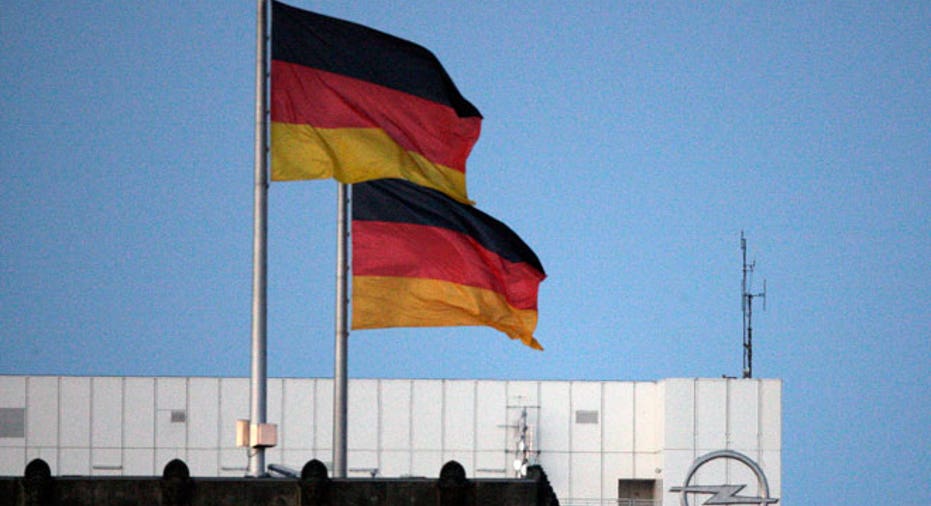German GDP Growth Slows, Contraction Looms

German growth slowed in the second quarter and a key sentiment indicator dropped for the fourth successive month, threatening contraction for Europe's largest economy if the euro zone crisis runs unresolved for much longer.
German gross domestic product (GDP) grew by 0.3% in the second quarter, data showed on Tuesday, a touch better than expected and helped by exports to countries outside of Europe as well as a pick-up in consumption.
But growth slowed from 0.5% in the first three months and the forward-looking ZEW sentiment index undercut even the lowest estimate in a Reuters poll, falling to -25.5 from -19.6
"Growth turned out to be pretty solid. But this could be the last positive piece of news out of Germany for some time," said Joerg Kraemer at Commerzbank. "The German economy could contract in the summer. It is fundamentally in good structural shape, but can't decouple from the recession in the euro zone, plus the global economy has also shifted down a gear," he said.
If the slowdown were to accelerate, it could affect the willingness of average Germans to contribute to euro zone bailouts, but for now Germany's labour market is holding up well, wages have risen and inflation is relatively low.
A poll for public broadcaster ARD earlier this month showed 63% of Germans believe the economy is in good shape largely because unemployment, at 6.8% of the workforce, remains relatively low. However, there are signs that a nearly uninterrupted six-year drop in joblessness is coming to an end.
The poll also showed a sharp spike in the number of respondents who believe the economy will deteriorate over the coming year. At 56%, that total is now at its highest level since early 2009, shortly after the bankruptcy of Lehman Brothers triggered the global financial crisis and plunged Germany into its deepest recession in the post-war era.
GROWING THREAT
Germany's "Teflon economy" has remained resilient throughout Europe's three-year debt crisis that has hit its peers, which are also major markets for its exports. But recent data have showed declines in manufacturing orders, industrial output, imports and exports.
Last week, the Economy Ministry said Germany now faced "significant risks" from the crisis.
"Germany is not managing to decouple itself from the rest of the euro zone," said Bernd Hartmann of VP Bank. "Various forward looking indicators point to a slight economic contraction in the third quarter. That means the last pillar of European growth is gradually buckling."
Germany is known for its export-driven growth, but the euro crisis has hit its biggest market. Roughly 40% of the country's exports go to its partners in the currency zone and 60% to those in the broader European Union.
China, one of Germany's fastest growing markets representing roughly 7% total exports, is also slowing. While some economists expect the second quarter could be the last quarter of growth for a while, few forecast a lengthy recession.
"There will be a weakening in the second half of the year, then a turnaround at the end of the year and recovery in 2013," Marcel Fratzscher, who will take over as head of DIW economic research institute next year, told Reuters. "I expect a dip, but not a sustained one."
Economists said German growth was no longer enough to avert a euro zone recession and exports, which declined for the first time this year in April, would likely weaken further.
"We do not think that Germany on its own can keep the entire euro zone afloat," said ABN AMRO's Aline Schuiling. The euro zone's economy as a whole shrank by 0.2% in the second quarter, having flatlined in the first.
Many still hope German consumption will help the country itself avoid a prolonged downturn, despite disappointing recent data, with retail sales falling back.
But the clinching factor will be policymakers' ability to get on top of the bloc's debt crisis.
"Consumption should stabilise the economy in bad times," said Berenberg Bank's Christian Schulz. "It remains decisive whether the euro crisis can be controlled."



















